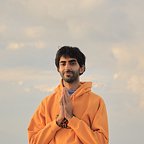Before AI ‘Becomes Conscious,’ You May Want To Understand Buddhism’s Main Psychological Theory
The five aggregates explain why you suffer.
Modern science has not agreed on a definition of consciousness. In fact, we don’t even know how to study it.
It is the axis around which our very existence revolves. We can’t just step aside and put it into a measuring device.
Even the Buddhists of Tibet have only a vague definition to offer: that which is luminous and cognizant.
But they had an advantage that we do not: they actually let themselves explore consciousness subjectively.
This means the discoveries of the Buddha, far from being dogmatically followed in blind faith, were tried and tested by experimenters for over 2,500 years.
The “inner scientists” were the successful monks, nuns, yogis, and yoginis.
And yes, they were homeless. Society provided them with free lunch. Instead of calling them hippies, and telling them to pull themselves up by the bootstraps.
In ancient times, humanity actually cared to build institutions to explore consciousness the only way it can be: individually.
